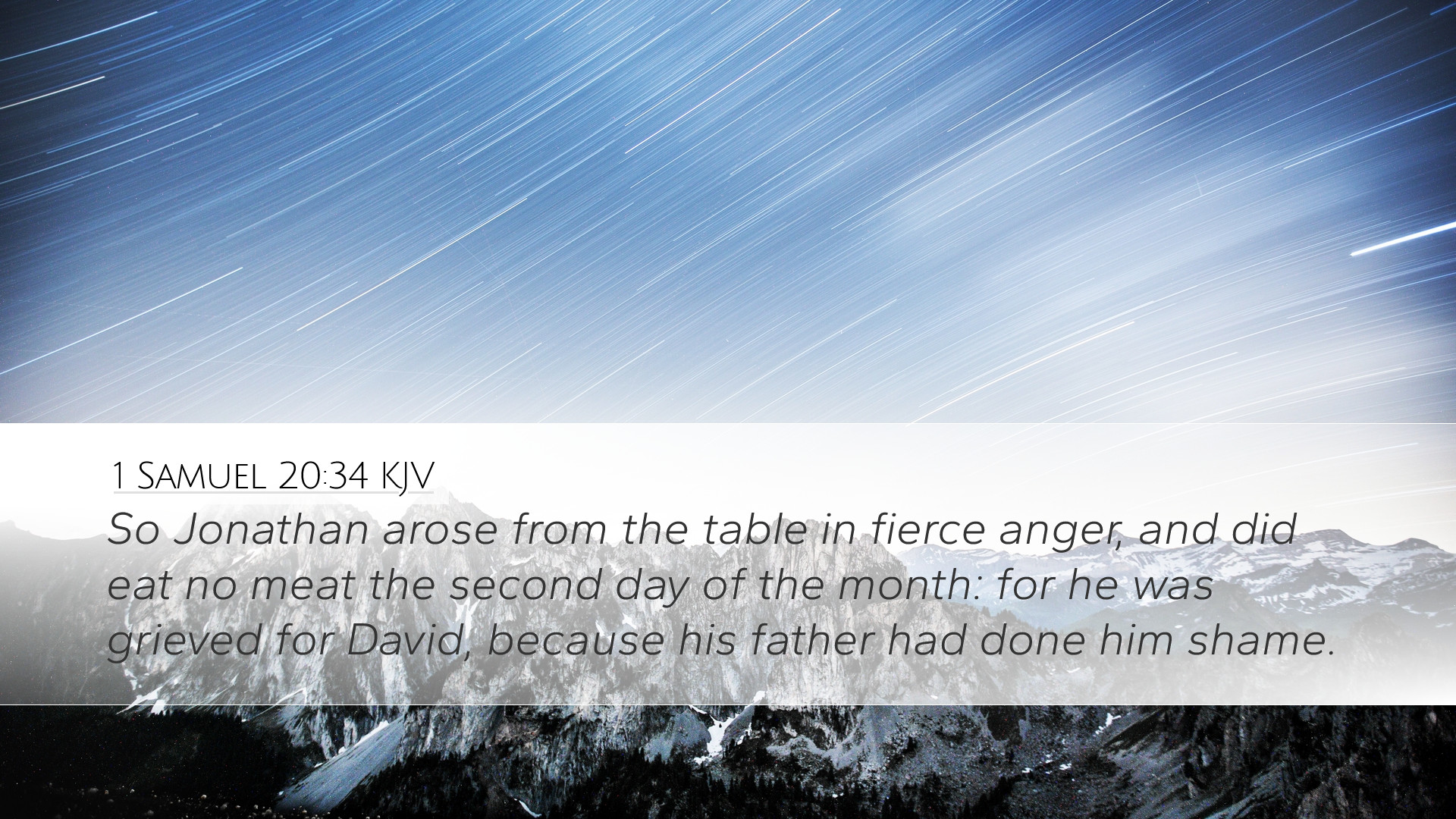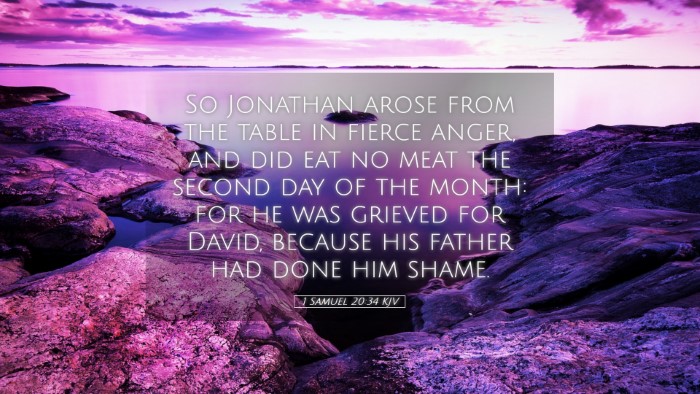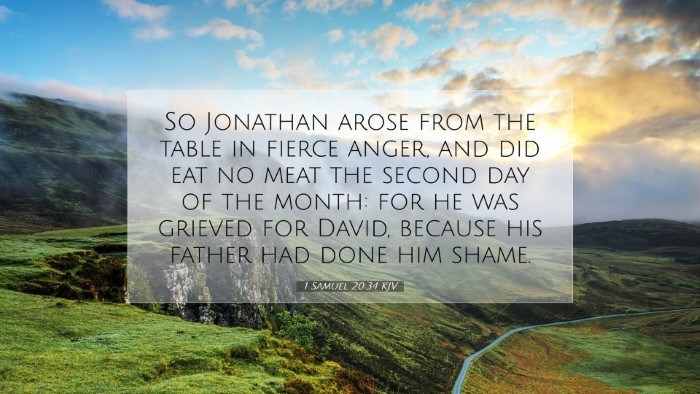Commentary on 1 Samuel 20:34
Verse Context: 1 Samuel 20:34 states, "So Jonathan arose from the table in fierce anger, and did eat no meat the second day of the month: for he was grieved for David, because his father had done him shame." This verse captures a poignant moment in the covenantal friendship between Jonathan and David against the backdrop of King Saul's escalating hostility towards David.
Understanding the Context
To fully grasp the significance of Jonathan's actions and feelings in this verse, one must consider the broader narrative found in 1 Samuel. The animosity of Saul towards David was not merely a political rivalry; it had deep personal and spiritual implications.
The Nature of Jonathan's Anger
Matthew Henry emphasizes that Jonathan's anger was not simply a reaction to his father Saul's deceit and cruelty but also stemmed from a profound loyalty to David. Jonathan's fierce anger illustrates his internal struggle as he grapples with the duplicity of his father’s intentions towards David.
The Weight of Covenant Friendship
Jonathan had made a covenant with David (1 Samuel 18:3), pledging loyalty and friendship. This commitment placed him in a challenging position, as he had to confront the reality that his father sought to kill his friend. Albert Barnes comments that Jonathan's refusal to eat signifies the depth of his grief and moral outrage against Saul's unjust actions. Jonathan represents an individual caught between familial loyalty and fidelity to his covenant with David.
Emotional Dimensions of Loyalty
Understanding the emotional turmoil faced by Jonathan is crucial. The Adam Clarke commentary suggests that the act of abstaining from food points to Jonathan's ceremonial mourning for David, indicating that the friendship transcended mere social interaction; it was a spiritual bond that placed David's welfare above his own familial obligations.
The Symbol of Shared Table
In ancient Near Eastern culture, sharing a meal symbolized peace and fellowship. Jonathan’s withdrawal from the table signifies a break in this fellowship due to an irreconcilable difference with his father. Matthew Henry notes that this is a striking statement about the cost of discipleship, friendship, and the sometimes painful decisions required to stand with the righteous.
Theological Implications
The actions of Jonathan raise significant theological questions regarding loyalty, justice, and moral integrity. Albert Barnes highlights that Jonathan’s choice to grieve and express anger exemplifies how believers must sometimes confront authority when it contradicts divine justice.
Implications for Pastoral Care
Pastors and ministry leaders can draw from Jonathan's example in their pastoral care, illustrating the necessity of standing firm in one's convictions even when it may cause personal or familial strife. The story stresses that faithful relationships may require us to advocate for justice and mercy in difficult situations.
Applications for Students and Theologians
For students and scholars, this verse invites deeper reflection on the narratives of the Old Testament concerning loyalty and leadership. The account of Jonathan and David challenges readers to consider how they negotiate their allegiances amidst competing demands. Adam Clarke asserts that Jonathan shows a model for followers of God to navigate complex relationships in faithful allegiance to God’s purposes.
Conclusion: A Call to Reflect
The fierce anger of Jonathan in 1 Samuel 20:34 highlights the immense cost of loyalty and the necessary stands one must take against injustice, even when it comes from those closest to us. This passage encourages God’s people to cultivate authentic relationships, uphold the truth, and seek justice.
As we reflect on Jonathan's grief and anger, may we also be inspired to nurture strong friendships rooted in covenant love, consistently stand with those who seek righteousness, and advocate against the injustices we witness in our own lives.


